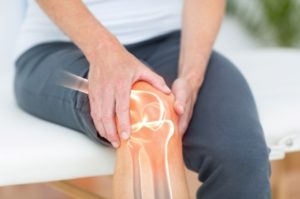I was a first-year medical student and like my classmates, vulnerable to developing whatever disease we were studying. Or at least compulsively worrying that I was in the early stages of its development. This week we had learned about anterior compartment syndrome. This is a condition where trauma to the muscle just on the outside of the shin-bone causes bleeding and swelling. That muscle happens to be contained in compartment composed of the tough fibrous sheet – called the fascia – that surrounds the muscle.
Because that sheath is so tough, the swelling has nowhere to go and compresses the muscle. The swelling can become so significant that it presses on the blood vessels that feed the muscle, effectively shutting of blood flow. Our anatomy professor warned that this was a medical emergency since muscle tissue without blood flow very quickly becomes necrotic – it dies.
 It was Friday afternoon and I joined my classmates in a game of pick-up soccer in front of the dorm where most of my classmates lived. I lived off campus in an upstairs apartment and by myself. Fairly soon after the game began, a player on the opposite team gave my anterior compartment a terrific kick after missing the soccer ball. It hurt. (Who wears shin guards to a pick-up game of soccer on a beautiful Friday fall day in New England at the end of a long week of lectures and late-night studying?)
It was Friday afternoon and I joined my classmates in a game of pick-up soccer in front of the dorm where most of my classmates lived. I lived off campus in an upstairs apartment and by myself. Fairly soon after the game began, a player on the opposite team gave my anterior compartment a terrific kick after missing the soccer ball. It hurt. (Who wears shin guards to a pick-up game of soccer on a beautiful Friday fall day in New England at the end of a long week of lectures and late-night studying?)
It also visibly began to swell. It was turning purple – primarily from the bruise and there was enough blood that I could see the clot forming under the skin – a hematoma. Deep purple – the color of necrosis!
There was no debate amongst my classmates and one close friend volunteered. We were on the way to the Emergency Department. A true emergency.
A kindly resident saw me quickly (it happened in those days!). He checked the pulses and circulation, the degree of swelling and the function of the muscle. He sat down beside me, looked me in the eye and told me it (and I) was going to be fine. Never had words of reassurance had such power. My pain began to melt, and my heart rate came back down to normal. He advised elevation and ice to help with both the pain and the swelling. He also knew how much pain this injury can cause and offered me some pain medication. I declined. I was feeling good and really – the pain had all but gone. I’m good.
My girlfriend was driving up from Boston that evening and I was expecting to see her about 6 – so we could have dinner and begin our weekend with a happy evening together. This was many years before cell phones – and communication was in the dark ages. She hadn’t arrived by 7 and I began to worry.
And my leg began to hurt. By 8 PM still no Barbara and still no word and I started imagining bad things. My leg pain increased. By 9 I was sure something very bad had happened – she was a reliable communicator, never late, and our relationship was good one – straight forward – no passive aggressive features and I trusted her deeply. If there had been any reasonable explanation she could have stopped on the way and called to let me know – knowing would be good. I didn’t.
My leg pain was fierce, and I was contemplating calling an ambulance to take me back to the ER to see the good and kindly resident who would give me what I needed when Barbara came in the back door – happy, smiling and glad to see me. I wasn’t sure what I was – angry, relieved, terrified, in love, or in a lot of pain– probably all the above. She assessed the situation quickly and offered to go the ER which she promptly did. My pain began to go away and by the time she had returned my pain was all but gone. I took the pain medication, we got on the couch, she held my hand, and all was good.
I don’t remember why she was late – I think she may have told me earlier in the week and I had forgotten because in the moment I wanted her to be there so much. I do remember the sequence of events and what a good and strong lesson it taught me about the components of pain. Insecurity, lack of knowledge, lack of good support, sense of danger, being able to trust that those upon whom you depend are going to be by your side, anxiety of any kind from anywhere – all these things will, not may, make things worse and the opposite of those things helps make pain go away. Good pain management attends to all of these things that make the nervous system feel safe.
To your health,
Michael Sharp, MD
